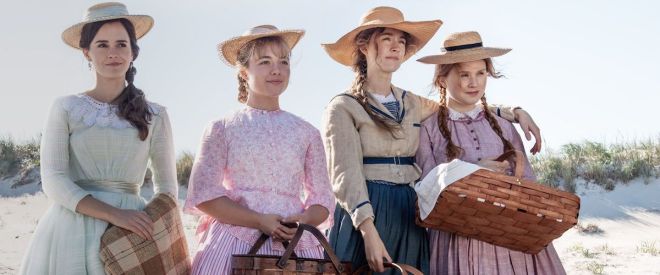
Two nights ago, I saw Greta Gerwig’s 2019 adaptation Little Women in the family living room with my mother. It is the third time I’ve seen it since it came out last December. As we watched that pivotal scene where Laurie (Timothée Chalamet) confesses his love for Jo (Saoirse Ronan) – It’s no use Jo, we have to have it out! says Chalamet’s with his curly, wind-swept hair to a horrified Ronan – my mom turned to me and asked out of the blue: when do you think your childhood ended?
I thought long and hard before I answered. In the scenes that follow, I would see how the random and peculiar question relates to the film, which is essentially about the process of growing up and becoming (surprise surprise, it isn’t really about Jo and Laurie!).
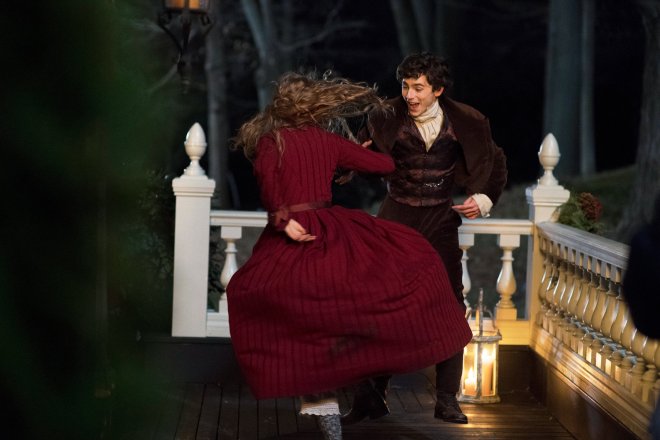
Anyway, I was particularly keen on watching the film with my mom because it was she who bought Louisa May Alcott’s beloved novel for my sisters and I when we were young, even younger than the youngest March sister (Amy, 12 years). I’ve loved it ever since. To me, the novel holds so many parallels to my own life even though it was set in 19th century Massachusetts in the middle of the American civil war, a time and place so unconceivable to a nerdy kid who grew up in ’90s Singapore.
Besides having a boisterous life with noisy sisters and parents whose personalities mirrored the Marches, being a hot-headed, book-loving tomboy like Jo for most of my adolescent life was something I found both fascinating and comforting growing up. Everyone fancies themselves a Jo I think, but the similarities between her and I still exist in very annoying ways. While watching the movie, my mom says very unflattering that I am exactly like Jo because I am headstrong, judgmental, and sometimes incredibly mean to my sisters. Hmmm… true, true, and true.
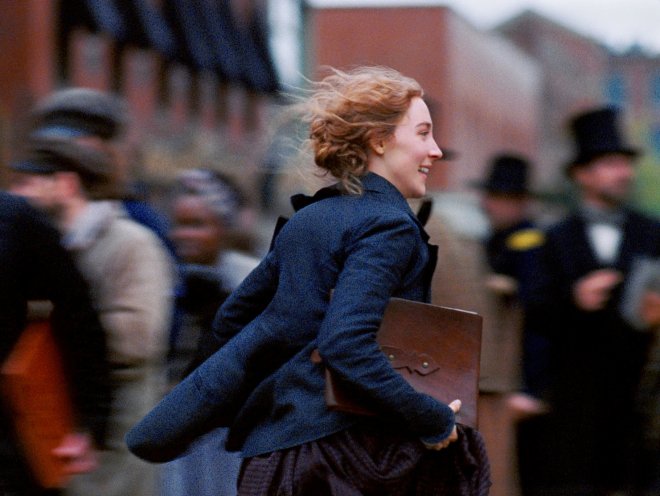
So is there anything else to say, really, that another Hollywood flick must be made?
I think so, yes. Though it has been adapted countless times for film, television, and stage to varying success – best of which were the 1933 and 1994 feature films, both good in their own right especially the castings of Katherine Hepburn and Winona Ryder respectively as the rough-and-tumble Jo – nothing felt quite right for me till this 2019 adaptation. And why is that? Maybe it’s because the world has changed very much in such a short time and to be a woman today looks very different than say, two decades ago.
They say every generation gets their own version of Little Women and I am very proud of mine (though we saw the film lose big time in five of the six categories it was nominated for at the 92nd Academy Awards – oh, and of course, there was the whole drama about women directors being snubbed). Though there were monumental expectations riding on it, Gerwig – who wrote and directed Ladybird, the 2017 Oscar-nominated film that also featured Ronan and Chalamet – exceeded them all with this beautifully-crafted, modern day adaptation. Of course, there’s also the stellar cast of Saoirse Ronan, Florence Pugh, Timothée Chalamet, Laura Dern, and Meryl-freaking-Streep… but let’s talk about that later.
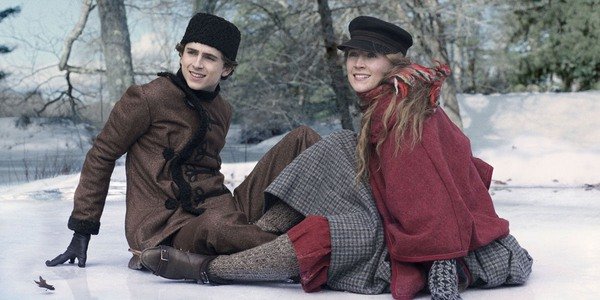
If you haven’t seen it yet, you must. Again, not so much because we haven’t heard the story before – OK I guess this is the time to say “spoiler alert” but honestly, it’s 2020 y’all, go read the dang book already – but because though it seems to take the most creative liberty in deviating from the original novel’s content, it actually feels the most truthful.
Two things separate this adaptation from previous efforts. The first is the atypical storytelling structure where the March sisters’ past and present are carefully layered over each other, connected by the sisters’ memories of similar storylines and settings. The second is the intertwining between the novel’s original content, Alcott’s life and the circumstances surrounding the publishing of the novel and lastly, Gerwig’s interpretation of the author’s values and how it relates to us living in the 21st century.
“I’ve had lots of troubles, so I write jolly tales.”
― Louisa May Alcott
There’s so much to say about the incredible life of Louisa May Alcott. The abbreviated version was that she was both an abolitionist and feminist, a fiercely-independent woman who grew up among great minds like Ralph Waldo Emerson, Henry David Thoreau, and Nathaniel Hawthorne. Alcott also lived in Massachusetts, was second in a sibling-hood of four sisters, and lived in relative poverty (Money is the end and aim of my mercenary existence, says Ronan in her portrayal of Jo). To say that Little Women is a thinly-veiled autobiography wouldn’t be inaccurate – Beth’s death in the novel mirrors Alcott’s younger sister Elizabeth passing away in her twenties – which is why the storytelling in this adaptation almost feels hermeneutical, with the way that Gerwig has chosen to tell both the author’s and the characters’ narratives and blend them together.
For example, I found out only after watching the film that Alcott never intended to end the novel the way she did. That outcome was suggested by her publisher as a “proper” way to end the two-part story, where the second half’s publication was contingent on having the main character settle down with the not-so-attractive Professor Bhaer after many years of saying she would never marry and have children. Besides the sudden shift – eh hullo, where is the character continuity – the fact that Jo never writes again was the part that devastated me the most.
“…for now she told no stories except to her flock of enthusiastic believers and admirers…”
― Little Women (1868)
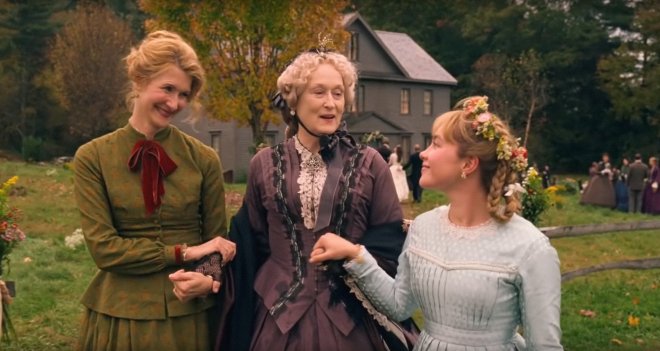
To then find out many years later that this was never Alcott’s plan and to see the real-life-fiction ambiguity translate onto silver screen brought a great sense of relief. It’s not to say that the novel’s original conclusion was inherently wrong in any way. It’s just that I feel that while finding romantic love is a part of the little women’s lives, it’s about a lot of other things too. Ronan’s Jo sums it up perfectly in perhaps the strongest original line in the movie:
“Women, they have minds, and they have souls, as well as just hearts. And they’ve got ambition, and they’ve got talent, as well as beauty, and I’m so sick of people saying that love is just all a woman is fit for. I’m so sick of it!”
― Jo March (Little Women, 2019)
And isn’t that right? All the female characters find both emancipation and catharsis in the all-too-painful process of “growing up” as they find their individual ways of being strong and vulnerable, and all the shades in between. It is the character duality that truly sets apart this adaptation from the rest, though admittedly all the previous attempts have their strong points (you can watch a pretty comprehensive overview and comparison of the major Hollywood adaptations here).
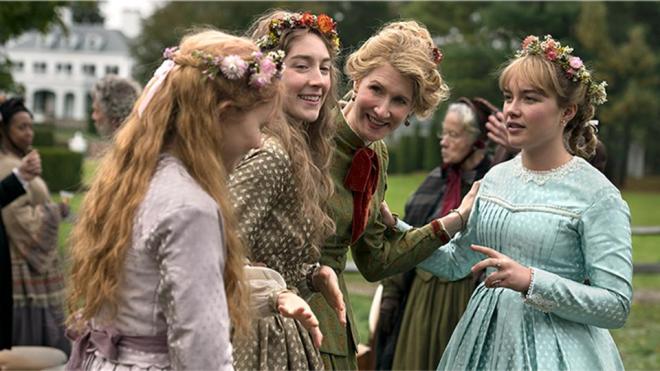
We’ll start with Amy, played by the scene-stealing Florence Pugh (side note: if you have not seen Midsommar already, you’re in for a beautiful and twisted treat). Amy, who has always been the least-favourite March sister because of her seemingly shallow materialistic pursuits and impetuous personality, gets a massive makeover in Gerwig’s adaptation. As the only “sane member of the family”, we see Pugh sensitively and sensationally portray the most believable transformation from girl to woman, equal parts enticing and sharp, playful and mature.
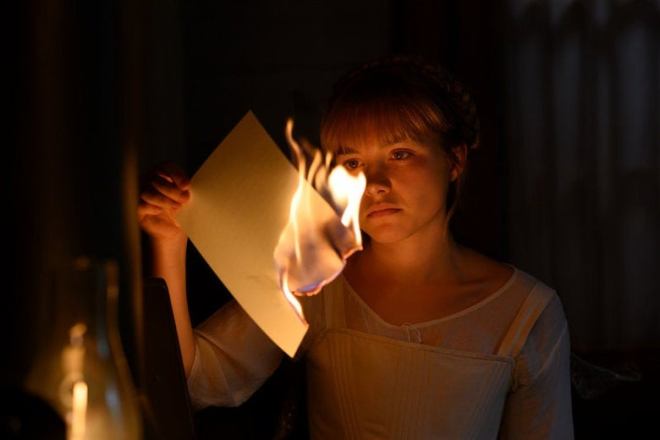
I think girls today can relate to the 2019 Amy March in many ways, who carries an enormous weight on her shoulders from a very young age. It may be that some of it has been put there by the Aunt Marches of today – whatever is the modern day equivalent of, you must marry well and save your family! – but the weight is mostly made up of the woman’s own desires and ambition, and not just for her own benefit. Amy has after all, always been the most keenly aware of her family’s financial situation. The realisation that she will one day have to bear the lion’s share of the burden forces Amy to finally transition from a moony-eyed, dramatic girl to a determined and astute woman. Viewers finally get character depth that has been missing in all previous adaptations in this one, fantastic scene between Pugh’s Amy and Timothée’s Laurie:
A: I’ve always known that I would marry rich. Why should I be ashamed of that?
L: There is nothing to be ashamed of, as long as you love him.
A: Well, I believe we have some power over who we love, it isn’t something that just happens to a person.
L: I think the poets might disagree.
A: Well. I’m not a poet, I’m just a woman. And as a woman I have no way to make money, not enough to earn a living and support my family. Even if I had my own money, which I don’t, it would belong to my husband the minute we were married. If we had children they would belong to him not me. They would be his property. So don’t sit there and tell me that marriage isn’t an economic proposition, because it is. It may not be for you but it most certainly is for me.
Retrospectively, we see that Amy has always had a mature streak, even in girlhood. This is illustrated best in Amy’s relationships with two individuals – Laurie and Jo. At the New Year’s Ball in Paris, when Amy chillingly says this to a very drunk Laurie – if I couldn’t be respected, I’d be loved – one realises that not only has Amy been living this reality her entire life (seeing the man she loves chase after her older sister), but that she has decided to meet the heartbreak by protecting her dignity. Whether it is in her love life or her art, second place is never an option for Amy March who declares: I want to be great, or nothing. I won’t be a common-place dauber, so I don’t intend to try anymore.
Of course, Amy and Laurie do end up together at the end of both the novel and film, much to the chagrin to many OG fans. IMHO, the literary characters are perfectly suited for each other as lovers of high elegant society. Plus, the process of these two falling in love seem so much more believable compared to previous iterations, a testament to excellent scriptwriting i.e. rhythm, the interlacing timelines, and reinvention of the characters… but that’s just me.
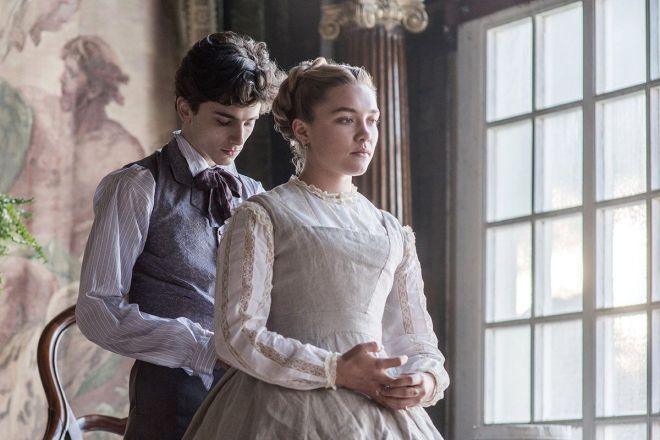
And we see this maturity too, in the sibling rivalry that exists between Amy and Jo – remember that it is Amy that comforts Jo after the hair cutting and Amy the same who encourages Jo to write and publish what would become Little Women – that both exasperates them and yet forces them to grow as individuals. From Amy’s burning of Jo’s book to their different seasons with Laurie, the two sisters are like two binary stars, forever locked in a dizzying dance with imminent collision poised in the near future.
Of course, the other sisters have their moments as well. Emma Watson plays Meg the eldest, and while I found her portrayal to be the most dull of the lot, she has an emancipation of sorts too that was missing in previous adaptations. Converse to Jo, her liberation comes not from being a famous actress as she had always dreamed, but from her marriage to Laurie’s tutor, John Brooke. While Jo has always been the moral centre of the March family, Meg finally finds freedom in breaking free from her younger sister’s expectations and finally choosing her own way – a domesticated life.
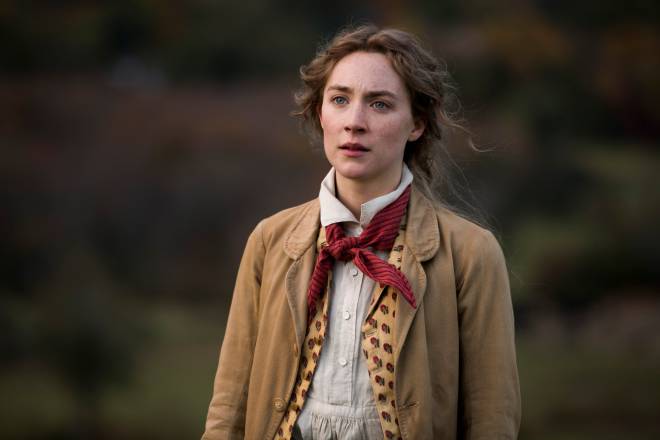
We see all the different facets of being a woman in Beth, Marmee, and Aunt March characters too, but perhaps this strong-vulnerable duality is exemplified best by the stubborn and intelligent Jo of course, played by the inimitable Saoirse Ronan. Jo who cuts and sells her hair for Marmee’s train ticket to Washington and sobs about it at night. Jo who in desperation says to an ailing Beth that she will stop the tide of death that comes to take her sister away (the tide goes out slowly but it can’t be stopped…). Jo who rejects Laurie and says that she will never love him the way he wants her to but later on, writes a love letter composed of half-truths because she misses his simple companionship.
I love Jo because even in her most passionate speech about the role of women in society, she demonstrates that duality by confessing her heartache at the same time. When she cries out: I’m so lonely, I feel it strike deep in my being because I have felt that so often and strangely enough, in both my seasons of singleness and being together with someone, and in the times I have chosen friendship over romance. I am learning too, that the feeling of loneliness isn’t mutually exclusive to singlehood and neither is it separate from other emotions of fulfilment and happiness. All of us are lonely, because we are so many people.
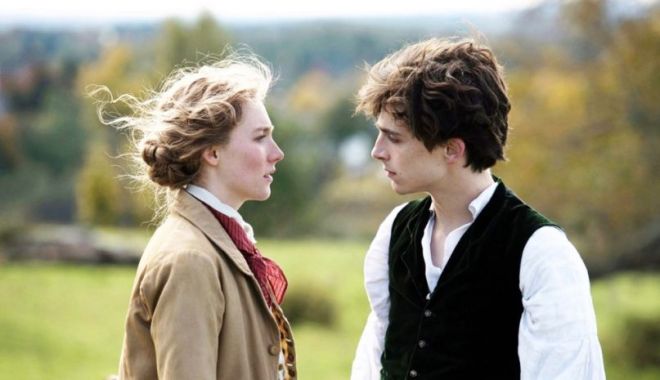
The truth is, we shouldn’t care less if Jo ends up with Laurie or Bhaer or no one at all. The heart of Alcott’s story and this decade’s Little Women is simply this: that there are many ways to be a woman in this world and all of them are right. That is the genius of Greta Gerwig’s adaptation, the open-endedness of the closing scenes and the weaving in of Alcott’s real life and the publication of her magnum opus. Jo at the train station under the umbrella, Jo at the editor’s office, Jo at the boys school… all of it culminates in the entire purpose of this so-called feminist pursuit – a choice.
“Just because my dreams are different from yours doesn’t make them less important.”
― Meg March (Little Women, 2019)
Little Women then becomes, a movie not only about women or love, but about time and life. It is about the decisions we make and the blessings and consequences we have to bear in tandem. It is Christmas morning with family, dancing with a boy on the front porch, moving to a new city to hustle hard, getting married or not, having children or not, knowing what you’re doing with life… or not. It is past and present with the tingling anticipation of a future that is not yet fully formed.
So when my mother asks me when I think my childhood ended, I find it difficult to answer her because I think it hasn’t yet. In fact, I think that the older I grow, the more child-like I become, just as it was always meant to be. The golden-tinted memory of adolescence is so very sweet and lovely, but then I think everything can look that way in the light of eternity.
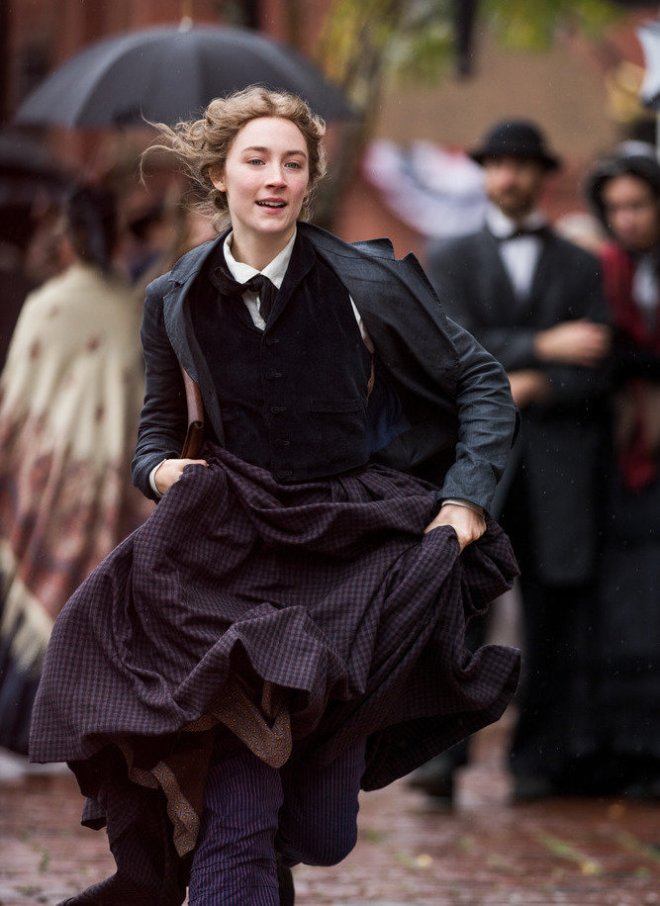
Like Jo, I think I will never learn to be proper. Maybe that’s okay.
When the film finally ends with Meg, Jo, Amy and all the little women and men too, sitting around a table with cake, the picture coloured in warm tones reminiscent of the March sisters’ childhood, its hazy, dream-like quality reminds me to stay young, to live well, and above all, to remember that I can always choose.
“Because children have abounding vitality, because they are in spirit fierce and free, therefore they want things repeated and unchanged. They always say, “Do it again”; and the grown-up person does it again until he is nearly dead. For grown-up people are not strong enough to exult in monotony. But perhaps God is strong enough to exult in monotony. It is possible that God says every morning, “Do it again” to the sun; and every evening, “Do it again” to the moon. It may not be automatic necessity that makes all daisies alike; it may be that God makes every daisy separately, but has never got tired of making them. It may be that He has the eternal appetite of infancy; for we have sinned and grown old, and our Father is younger than we.”
― G. K. Chesterton, Orthodoxy





